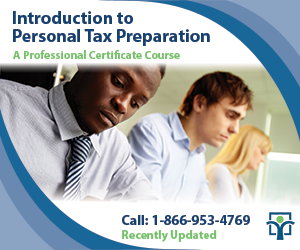Last updated: January 09 2018
Third-Party Penalties: Risks for Tax and Financial Advisors

Should professional tax preparers and financial planners work with clients who are not tax compliant? If you are helping them to become compliant, then by all means work with them to set the record straight. But the answer is likely no, if it means that these professionals will open themselves up to the possibility of civil penalties. Here is a run-down of the rules every professional should know:
According to the CRA, a Planner Penalty will be levied against someone who, under circumstances amounting to culpable conduct:
• makes, furnishes, or participates in the making of, a false statement for the purposes of provisions in the Income Tax or Excise Tax Acts
• causes another person to make or furnish such a false statement.
CRA cites examples of when this subsection could be applicable:
• where tax shelter promoters hold seminars or presentations to provide information in respect of a specific tax shelter; and
• appraisers and valuators prepare a report for a proposed scheme/shelter that could be used by unidentified investors.
The penalties are severe in these cases. For each false statement the amount is $1,000. But when the false statement is made in the course of a planning or valuation activity, it is the greater of $1,000 or the total of the person’s “gross entitlements” received for these activities.
 |
A Tax Preparer’s Penalty will result when a tax preparer – or any person, including an investor – participates in making false statements, in cases where they would reasonably be expected to know better. CRA again cites specific examples:
• where a person is preparing a tax return for a specific taxpayer;
• where a person is providing tax advice to a specific taxpayer; and
• where an appraiser or valuator is preparing a report for a specific taxpayer or a number of persons who can be identified
Penalties in these cases can be levied under the Income Tax Act, subsection 163.2(5). They are $1,000 and the lesser of (1) the penalty levied on the taxpayer who uses the false statement to his/her advantage and (2) the total of $100,000 and the tax preparer’s gross compensation. Further penalties can be levied under the Excise Tax Act.
These rules for false statements made have been in place since June 30, 2000, and in general the CRA may look back for a period of six years, except in the case of fraud, when they can look back even further.
Best-selling author Evelyn Jacks is working on the NEW ESSENTIAL TAX FACTS: How to Make the Right Tax Moves and Be Audit-Proof, Too. Pre-orders accepted now. It will be available in February 2018. She tweets @evelynjacks.
©2018 Knowledge Bureau Inc. All Rights Reserved.





